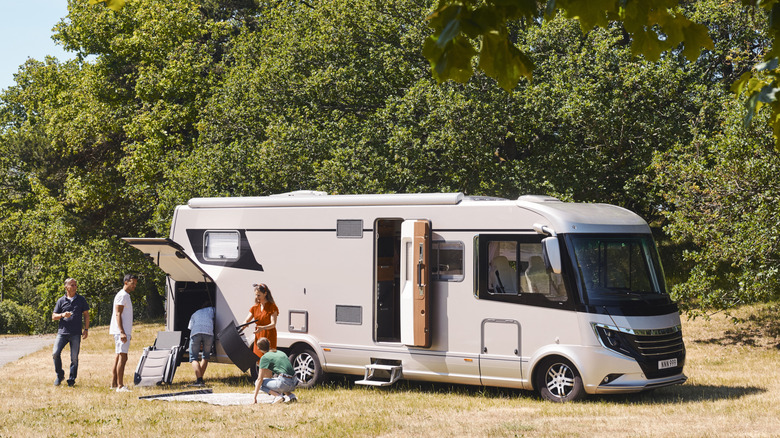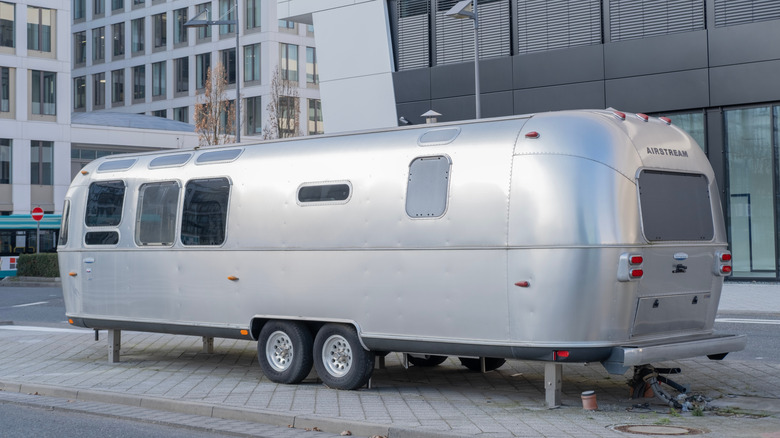What Does RV Stand For, And How Are They Different From Campers?
Recreational vehicles, also known as RVs, offer one of the easiest ways to get outdoors and visit national parks, campgrounds, and areas otherwise lacking hotel offerings. Campers and RVs are similar to one another, as they both offer their owners some incredible freedoms. However, while they may not be identical, the two terms are more similar than what you may expect.
The term 'recreational vehicle' is an umbrella term that houses campers, motorhomes, and pop-up trailers. Basically, anything that you can live in while on the road is considered to be an RV. For the general public, the term RV is most closely associated with motorhomes, or vehicles that can be driven separately from other vehicles and still house people.
Campers typically refer to live-in trailers that are pulled behind vehicles. That's not to be confused with pop-up trailers, which are a specific type of camper that requires owners to unfold their trailer and 'pop' it up. However, there are a number of other major differences between campers and RVs that you should know about.
RVs vs. campers
Recreational vehicles have multiple classes to help distinguish them by size and capability. The largest models, Class A motorhomes, refer to vehicles that span between 26 and 45 feet long. Class A motorhomes will almost always feature amenities you would find in a household, such as a full kitchen, bathroom, and sometimes more than one bedroom. Class B motorhomes are what you would refer to as camper vans. Camper vans usually offer limited living spaces, typically without the amenities Class A motorhomes offer. The final classification, Class C motorhomes, offer a middle ground between Class A and Class B motorhomes. Class C motorhomes range from about 25 to 36 feet and is the only class that features a bunk that sits right above the motorhome's cab.
Campers also offer multiple styles and sizes to make sure you're not purchasing more than you require. Fifth-wheel campers are the biggest available, offering similar amenities to a Class A motorhome, but it needs to be towed. Travel trailers are most similar to Class C motorhomes, though they can range up to 45 feet long. Travel trailers offer sleeping areas, kitchens, and bathrooms, giving small families plenty of space on the road.
Say you want a camper big enough to fit your family, but you also don't want to have to bring a second tow-capable vehicle to haul dirt bikes or ATVs, a toy hauler camper is right for you. Toy haulers offer all the amenities of a travel trailer or a fifth-wheel, just with extra carrying capacity. There are smaller camper trailers like micro trailers and pop-up campers that offer one or two beds, a limited storage and seating area, and a power hookup for a small kitchen. Since they are much smaller and lighter than bigger campers, micro trailers and pop-up campers are perfect for those whose vehicles have lower towing capacities.

